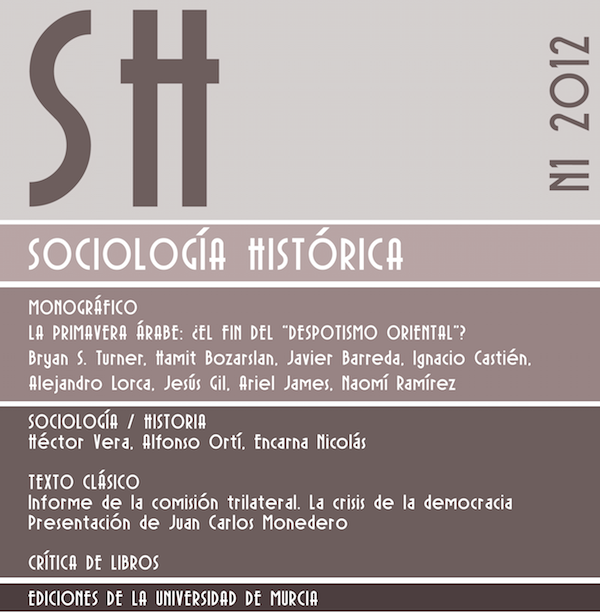El factor tribal en las revueltas árabes: capitalismo de familias y revolución política
Abstract
The Western world uses to ignore the tribal factor in almost every analysis because a mentality far from the kin-based group, a concept prevailing in the Muslim world. Speaking of the tribal structure in those societies, the present study focuses on several revolts within the Muslim world, which took place during 2011 and 2012. A forerunner are the so-called “bread revolts” of the period 2009-2010, then buried deep in the media news. The international food crisis and increase of prices had impact and forced the popular revolts of several Muslim countries of Africa and Asia. The factor which articulates the Arab revolt is an armed conflict among several ethnic, religious and tribal groups, fighting each other in order to monopolize the national welfare. The Arab revolt, the so-called “Arab spring”, caused a change of the clans in power, but the traditional elites keep running on, and so abiding the “crony capitalism” of the Arab-Muslim world.Downloads
-
Abstract779
-
PDF (Español (España))253
Las obras que se publican en esta revista están sujetas a los siguientes términos:
1. El Servicio de Publicaciones de la Universidad de Murcia (la editorial) conserva los derechos patrimoniales (copyright) de las obras publicadas, y favorece y permite la reutilización de las mismas bajo la licencia de uso indicada en el punto 2.
2. Las obras se publican en la edición electrónica de la revista bajo una licencia Creative Commons Reconocimiento-NoComercial-SinObraDerivada 4.0 España (texto legal). Se pueden copiar, usar, difundir, transmitir y exponer públicamente, siempre que: i) se cite la autoría y la fuente original de su publicación (revista, editorial y URL de la obra); ii) no se usen para fines comerciales; iii) se mencione la existencia y especificaciones de esta licencia de uso.
3. Condiciones de auto-archivo. Se permite y se anima a los autores a difundir electrónicamente las versiones pre-print (versión antes de ser evaluada) y/o post-print (versión evaluada y aceptada para su publicación) de sus obras antes de su publicación, ya que favorece su circulación y difusión más temprana y con ello un posible aumento en su citación y alcance entre la comunidad académica. Color RoMEO: verde.










